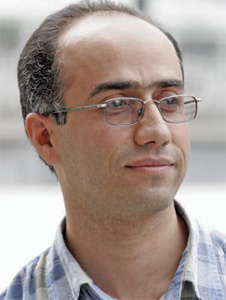Continuity of a failed diplomacy
A note by Morteza Kazemian

According to Iranian charge d’affairs in Bolivia, Iran’s Red Cross is planning to establish medical centers in two Bolivian cities. Soltani has also said that some other clinics will be built in other parts of Bolivia to offer low-tariff medical services to poor citizens. According to Ramiro Tapia, the Bolivian minister of health, Bolivia has enjoyed Venezuelan and Cuban support in medical care sector and the added Iranian support would do well to offer free medical services to Bolivian citizens and to the people living in border regions with Peru, Brazil and Argentine.
Such positions are not rare in Iranian relations with the outside world. Months through Ahmadinejad’s presidency, we have been accustomed to hear such news. One day it is building power plants and electrical infrastructure in villages of an undeveloped far Asian country and the other day, it concerns economic, social, cultural and religious projects in countries of the South and in developing or undeveloped countries. The news on the Iranian government’s so-called Kindness Diplomacy seems unending to the ears of the bewildered Iranian citizen and he has to hear them while dealing with power blackouts and unavailability of free medical care. Such news seem surprising, unjustified and bitter to the ears of the Iranian citizen.
The humanitarian aids offered by developed and rich countries or the North are respectable and usual. But the problem is that the political aims are the underlying factor of such programs. While Iranian citizens need the same aids and facilities, Tehran offers aid and support to other countries to win their ideological backing and this is the entangled knot of Iranian interaction with third world countries. These countries accept Iranian aids but when their support is needed, they do not wish to support Iran. The simplistic view in this regard is that they should support Iran but the reality tells otherwise.
One of the clearest examples of this failed strategy happened last Friday in general assembly of the United Nations. The project of Iran seeking membership in United Nations security council has been intensified by Mahmoud Ahmadinejad speech in New York but the result was a loss. Only 32 votes were cast for Iran and the rival-Japan- easily won 158 votes to gain a seat in the security council. It was only the Iranian government who had falsely assumed Iran would win. Apart from Japan, other countries like Turkey(with 161 votes), Mexico(185 votes), Austria(133 votes) and Uganda(181 votes) also won the membership of the security council.
The case of Iran’s gaining only 32 votes out of 192 votes is not hard to analyze. The non-aligned movement countries (who have 118 votes), the Islamic Conference Organization countries (who have 57 votes), and the countries of Group 77 had the opportunity to vote in favor of Iran but they did not do that. It seems rather unusual because Ahmadinejad’s government and the state media always emphasize on these countries’ support for Iran.
It is rather annoying that such simplistic approaches are always justified by the pro-government groups and lobbies. For example,the Iranian far right daily Kayhan tried to justify Iran’s failure in security council in such words: There are rumors spreading that the Japanese had tried every possible way to encourage the ambassadors of different countries to vote for Japan. They had even threatened or bribed them and gave them money and jewels to win their support.
The position of Tehran in this case is not clear. If Tehran thinks gaining a seat in UN security council worths giving jewels and money, why it had not done the same thing? If Tehran thinks gaining a seat in UN security council is worthless, then why it tried so hard to compete against Japan? If Iranian aids to countries of the South do not catch up with the economic power of its rivals, why doesn’t Tehran try to reach a precise understanding of international politics and power?
Why..
There are many ifs and whys here. If Ahmadinejad and his neoconservative theoreticians on diplomacy assume that aids to countries of the South will make them act in favor of Iran in critical situations, they are wrong. Absolutely wrong.
If the Iranian government had some scientific and realistic assessments of international relations and the present global order, then Islamic Republic humanitarian aids would have gone a different way. But the continuity of the present failed diplomacy does not end in Ahmadinejad’s presidency. The Iranians have to pay a huge price for such failed assumptions and strategies.

